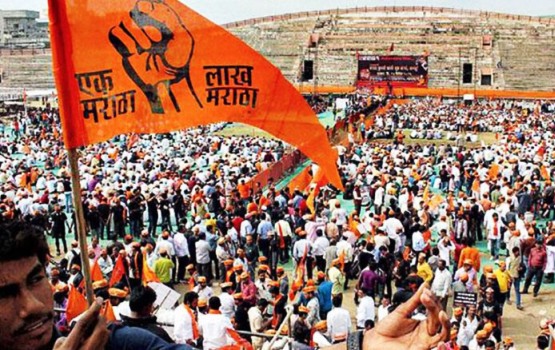Tanvi Sinha
The Supreme Court said it would decide the matter of reservation of Marathas in Maharashtra for jobs and education.
The five-judge bench headed by Justice Ashok Bhushan gave the hearing for February 5th when it said the situation regarding the physical hearings would be clearer.
The date for the hearing came after senior counsel for the government, Mukul Rohatgi, said that there were many problems with video conferencing with Mumbai clients via online interfaces.
Citing this he stated that the bench may hear the matter after the vaccination for COVID-19 had been administered in March to the country- as even if it is started now, it would take 6-8 weeks to get to the judges and lawyers who are above the age of 60.
The bench however stated that due to clarity being brought on the subject of physical hearing in two weeks the bench would hear the matter after two weeks. The matter has now been adjourned till February the 5th.
The issue had reached the court on December 9th last year when as due to the legislation being stayed, the results of the 2018 Maharashtra law, which gave 16% reservation to Marathas in Education and jobs, was not reaching people.
The implementation of the legislative had been stayed by the apex court in September, but the court had made it clear that the status of those who gained benefits from the government’s legislatives would not be disturbed.
This led to the Socially and Educationally Backward Classes Act, 2018 be implemented for the reservation of the Marathas instead. However, on June 2019, the Bombay HC said that any reservation over 12% was not valid.
Additionally, a 102nd amendment to the constitution had stated that reservation can only be granted to a community named in the President’s list.
The High court had also accepted Maharashtra government’s argument of Marathas being a socially and educationally backward class and to take steps for their progress, but had wanted the cap for the percentage of the reservation to be no higher than 12%

